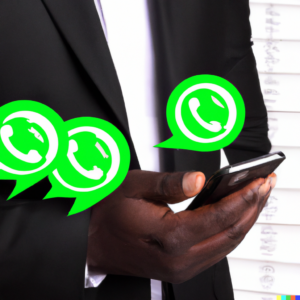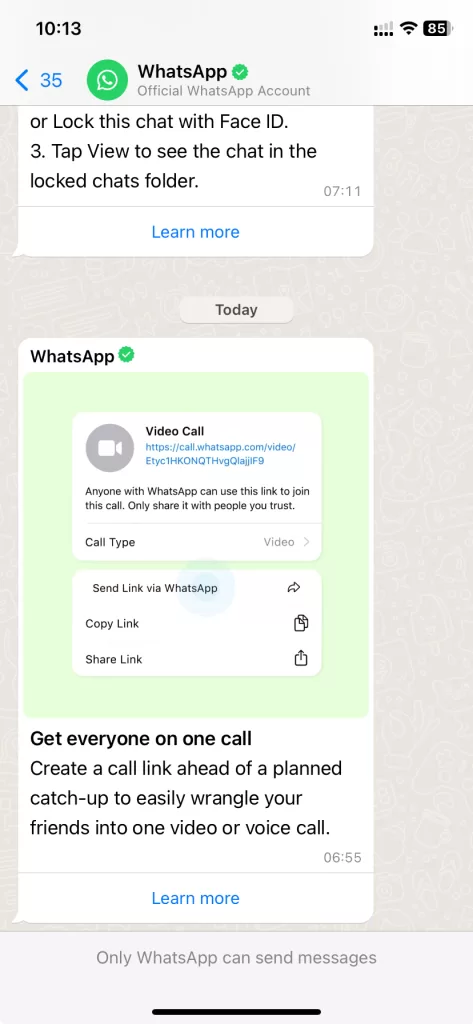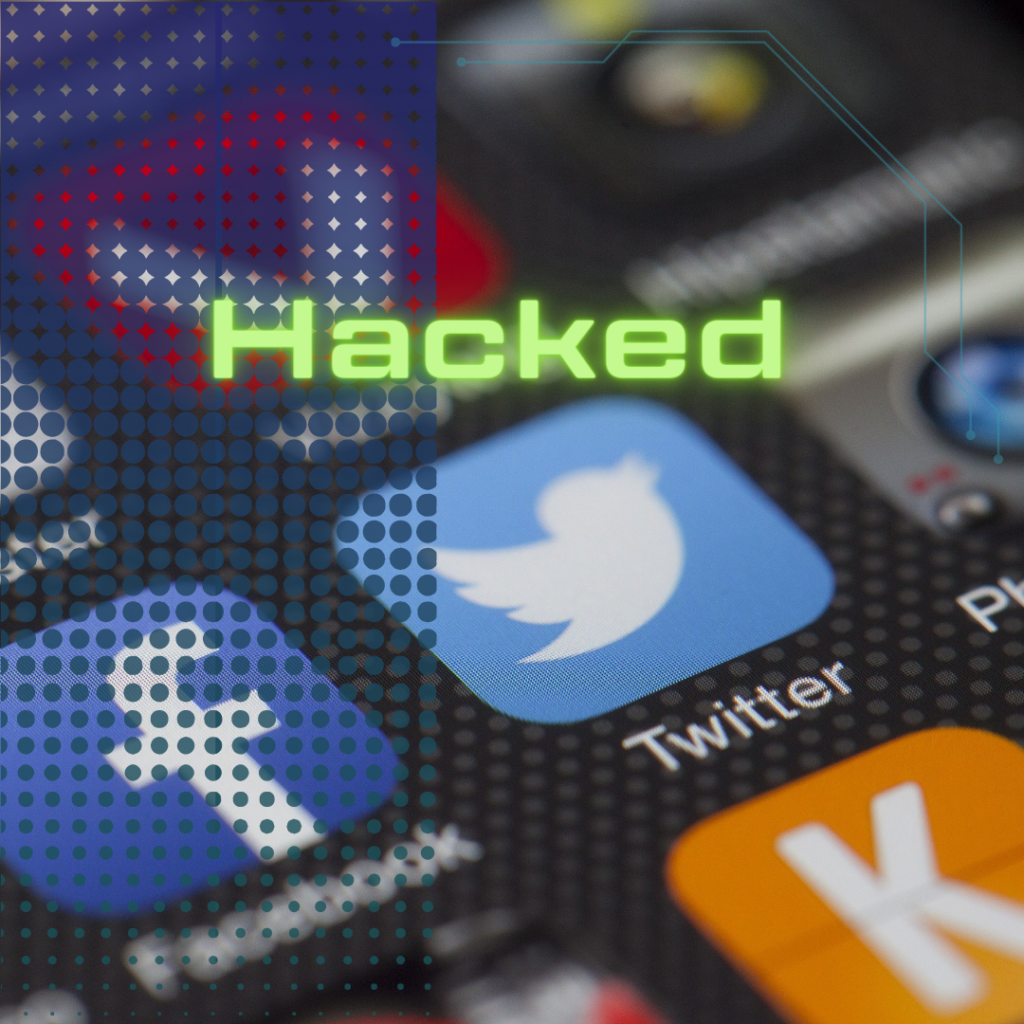Am I the only one noticing how quickly WhatsApp is making its way into the enterprise messaging and collaboration space? Lately, it has introduced numerous new features, such as communities and channels.
In India, businesses are increasingly relying on WhatsApp not just as a marketing tool but also for delivering important updates to customers. With the promise of APIs that can seamlessly integrate with enterprise tools, it’s becoming clear that WhatsApp is serious about serving the business world.
Just today, WhatsApp announced a new feature called Call Links, similar to the meeting links in Google Meets or Zoom, allowing scheduled group calls:
“Create and share a WhatsApp call link so that anyone with a WhatsApp account can join your call by opening the link. You can send it to a person or group on WhatsApp, or copy the link and share it another way.
Every time you create a call link the URL is different and secure, so no one can guess your call links. Call link calls are end-to-end encrypted.“
Additionally, from startups to large corporations, everyone is struggling to prevent the widespread use of web.whatsapp.com on their enterprise devices. Security teams are caught in a dilemma – whether to block or allow web.whatsapp.com. Before they can make a decision, it seems likely that it will become an integral part of the enterprise suite.
One feature that WhatsApp appears to lack when compared to Slack is the ability to use ‘@here’ to notify all users 😁
What are your thoughts on this? 🤔
#WhatsApp #EnterpriseCollaboration #FutureOfWork #meta



